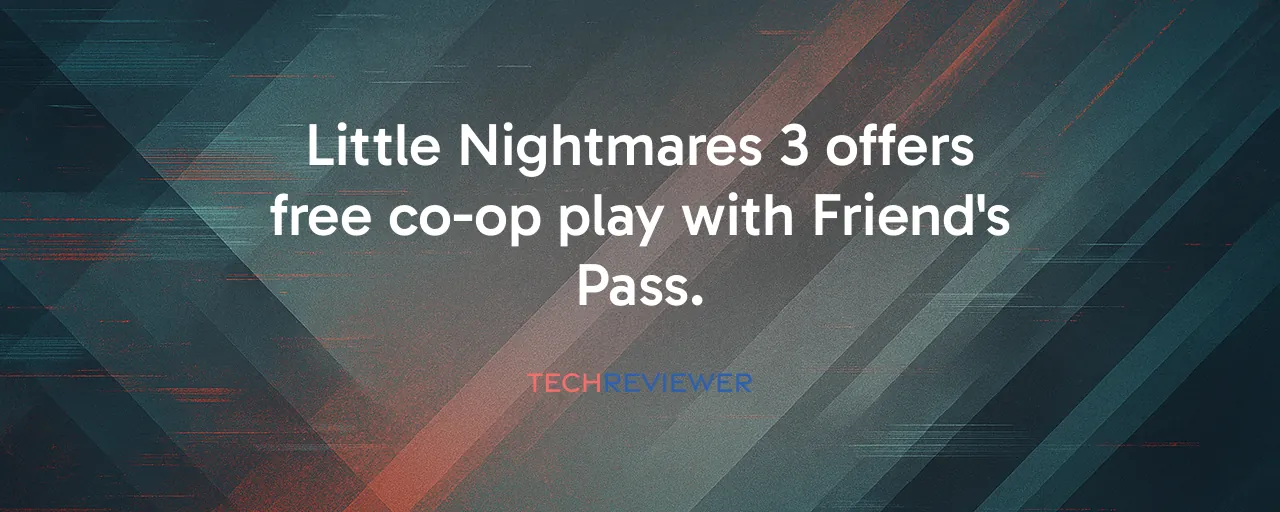A New Way to Share the Scares
Little Nightmares 3, which hit PC on October 9, 2025, and consoles a day later, introduces a feature that's turning heads in the horror gaming world. The Friend's Pass, developed by Supermassive Games and published by Bandai Namco, lets one player's purchase unlock full co-op gameplay for a friend who doesn't own the game. This move breaks from the franchise's tradition of solitary, spine-chilling experiences, opening the door to shared adventures through its eerie world. Fans of the series, used to navigating creepy corridors alone, now get to team up with a buddy, making the game feel fresh and approachable.
The Friend's Pass is more than a gimmick. It's a deliberate choice to make gaming more inclusive, letting players invite skeptical friends to try the full game without spending a dime. With characters Low and Alone wielding a bow and wrench, the co-op mechanics demand teamwork to solve puzzles and survive horrors. This accessibility push aligns with a broader industry trend, as co-op games on Steam alone raked in 4.1 billion dollars in the first half of 2025. By lowering the financial barrier, Bandai Namco bets that shared experiences will turn curious friends into buyers.
Learning From the Past: It Takes Two's Triumph
To understand why the Friend's Pass matters, look at Hazelight Studios' It Takes Two. Released in 2021, it sold over 23 million copies by early 2025, a staggering feat for a game that lets one purchase cover two players. The Friend's Pass in that game proved that letting friends play for free can spark massive word-of-mouth buzz, driving sales rather than cannibalizing them. Players raved about solving puzzles as Cody and May, and the game's critical acclaim, including winning Game of the Year at The Game Awards 2021, showed that accessibility and quality can coexist.
Little Nightmares 3 draws inspiration from this success. Unlike traditional horror games like Resident Evil, which lean on isolation, It Takes Two showed that cooperative play can amplify engagement. The shared vulnerability of facing monsters together keeps the tension alive, a lesson Supermassive applies with Low and Alone's teamwork-focused design. However, unlike It Takes Two, Little Nightmares 3 lacks cross-platform play at launch, limiting friends to the same console ecosystem. This restriction highlights a trade-off: while the Friend's Pass broadens access, platform barriers can still frustrate players.
Supermassive's Co-Op Legacy and Its Limits
Supermassive Games isn't new to the Friend's Pass. Their Dark Pictures Anthology series used time-limited passes to boost engagement, letting one player invite a friend for a month-long window. Titles like House of Ashes saw spikes in players when passes were active, but the expiration dates sparked backlash. Some players felt misled when access vanished, a problem Little Nightmares 3 avoids with a permanent Friend's Pass available from day one. This shift shows Supermassive learning from past missteps, prioritizing clarity and long-term access.
Still, the system isn't flawless. The game requires constant online connectivity, ruling out local co-op for players who prefer couch gaming or lack reliable internet. Save files lock players into either solo or co-op modes, creating friction if you want to switch playstyles. These constraints reflect tough development choices, as Supermassive prioritizes stable online sessions over flexible local options. Despite these hurdles, the Friend's Pass makes horror gaming more social, letting friends share the dread without both needing to pay.
Why Shared Gaming Is the Future
The Friend's Pass taps into a growing appetite for shared gaming experiences. With the horror market projected to hit 9.81 billion dollars in 2025, cooperative titles like Phasmophobia have shown that teamwork can amplify fear. Bandai Namco's strategy banks on players spreading the word after playing with friends, much like how It Takes Two grew through social buzz. This model also makes gaming more inclusive, letting budget-conscious players join in without upfront costs, a nod to the 66 percent of gamers who face access barriers, according to industry studies.
But challenges remain. Platform holders like Sony and Microsoft must navigate revenue-sharing complexities when one purchase supports two players. Smaller developers may struggle to afford the server costs or licensing systems needed for Friend's Pass setups. Still, the success of games like Split Fiction, which launched with cross-platform support on March 6, 2025, suggests the industry is moving toward more open, shareable models. Little Nightmares 3's approach could inspire other studios to rethink how they bring players together, making gaming a more connected, accessible hobby.
